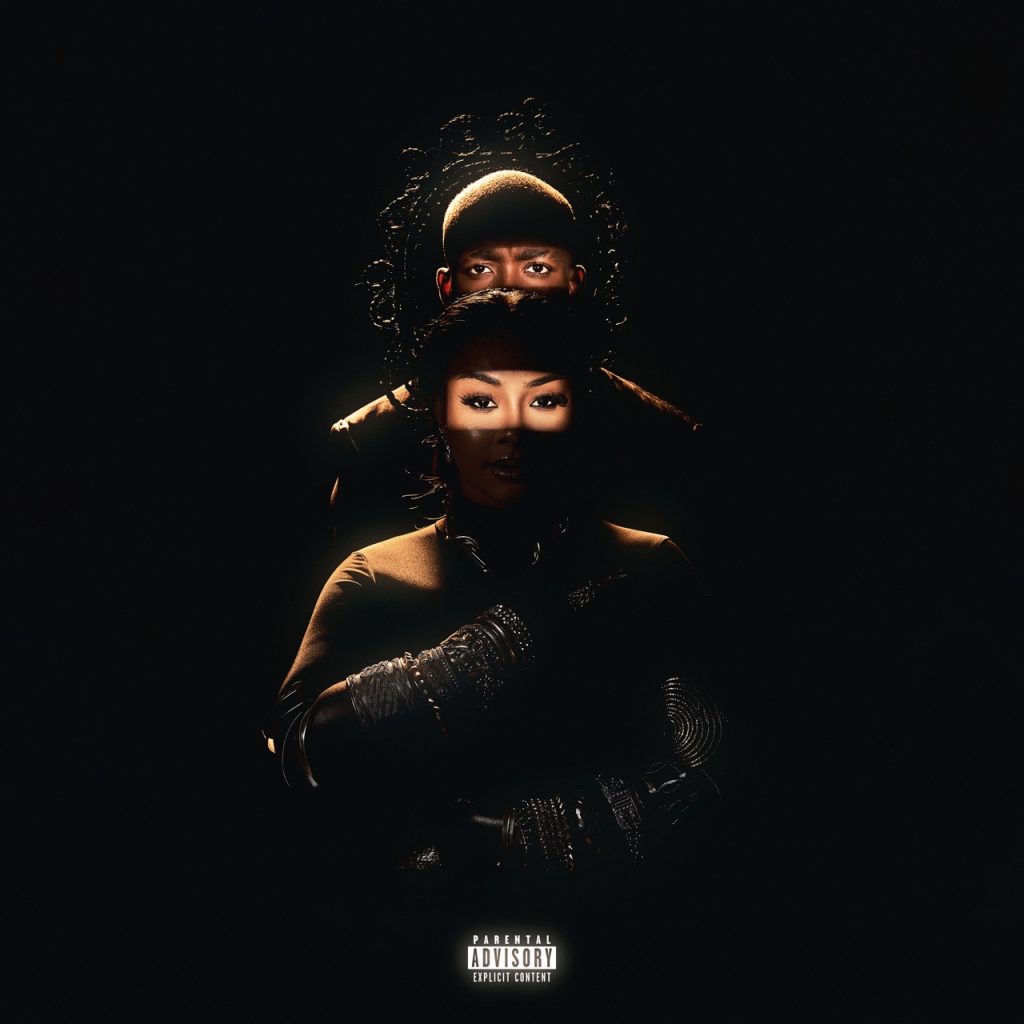Two of the hottest South African rappers Roiii and Boity Thulo have decided to combine their forces for good. The pair have teamed up to release a new single, Oh My (OMG), blending Boity’s insane rap prowess with Roiii’s drill sound. Co-produced by PLXYGRND and Roiii, the track is an embodiment of the evolution of South African hip hop with its hard-hitting beat and adventurous fusion of styles. BubblegumClub spoke with the formidable ensemble who announced their upcoming collaborative album, set for release in November 2024.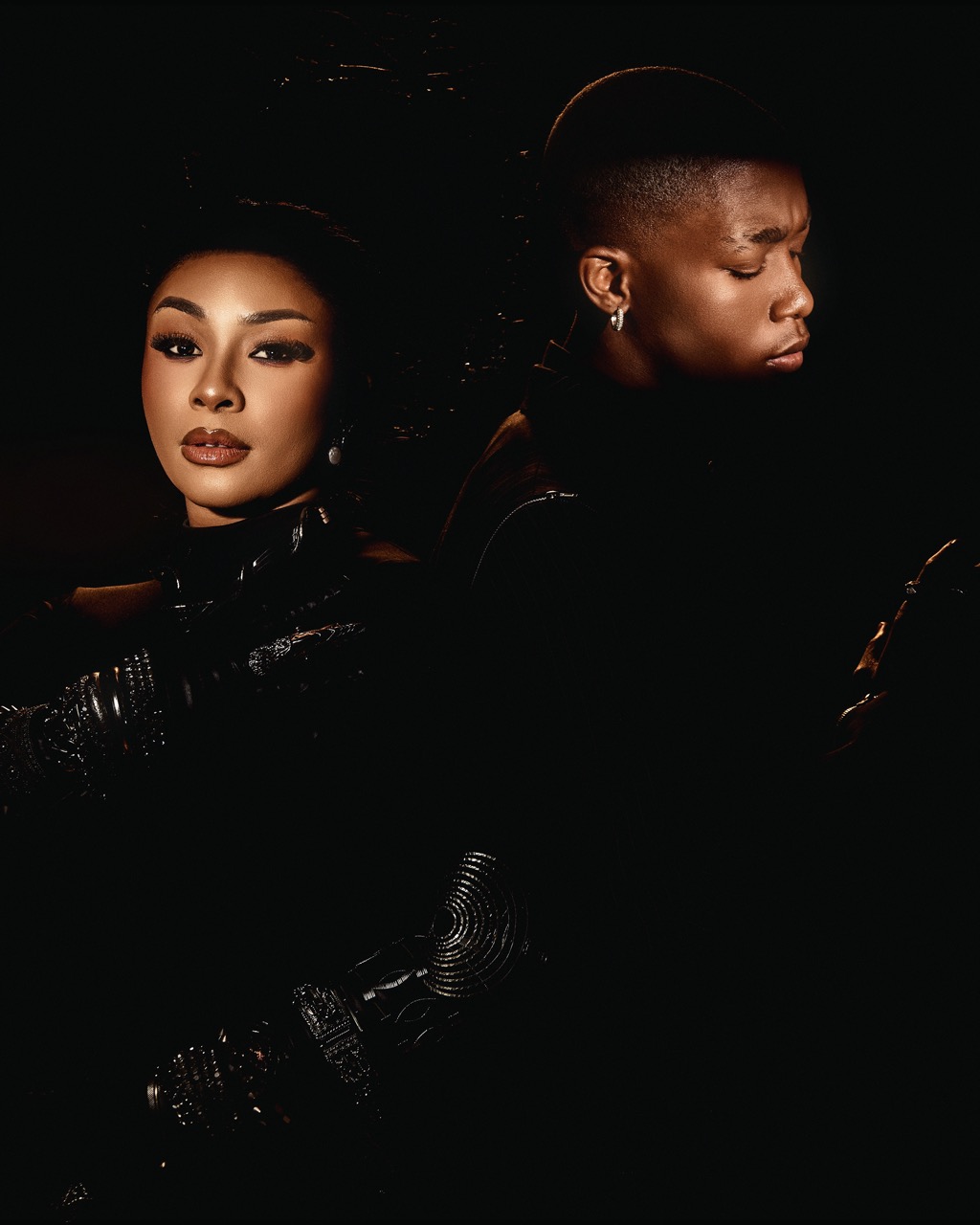
Thembeka Heidi Sincuba: Could you tell us about how you came to this collaboration?
Boity: Yeah, it was when I was dropping these remixes. I was remixing some popular songs at the time, using that as a way to ease back into music. It felt like the right approach for a comeback. A lot of the tracks I chose were hot at the time, and one of them was ROCKABYE (2022). I remember talking to K.O. and asking if he’d be open to us doing a remix, especially since my freestyle was getting such great feedback. He suggested, “How about this: I’ll give you something, you give me something,” and introduced me to Roii.
He said, “I’ve got this amazing artist you should work with.” I listened to the song and thought, “This is brilliant. Honestly, I don’t even need to be on it—it’s already good as is.” But I knew it would be even better collaborating with him.
THS: That makes me think about the different trajectories both of you are on as artists. What makes this the perfect moment for this collaboration?
Roiii: I think what’s great about Boity is she’s willing to explore. We were both at different points but shared a similar position in our careers. Boity had been in the industry but was looking to make a comeback after taking a break. On my side, I had just come out of a label deal and was in a quiet phase, recalibrating my brand.
We actually made the song last year, but it took a bit of time to release. I remember Boity’s manager reached out, saying, “We need to make this happen.” Eventually, we got in the studio, played each other’s work, and it just made sense—we were on the same path creatively. We’re also doing something unique. You don’t often see a female and male artist in hip hop, both established, come together for a project like this. It feels like we’re coming back at different levels, but still in sync.
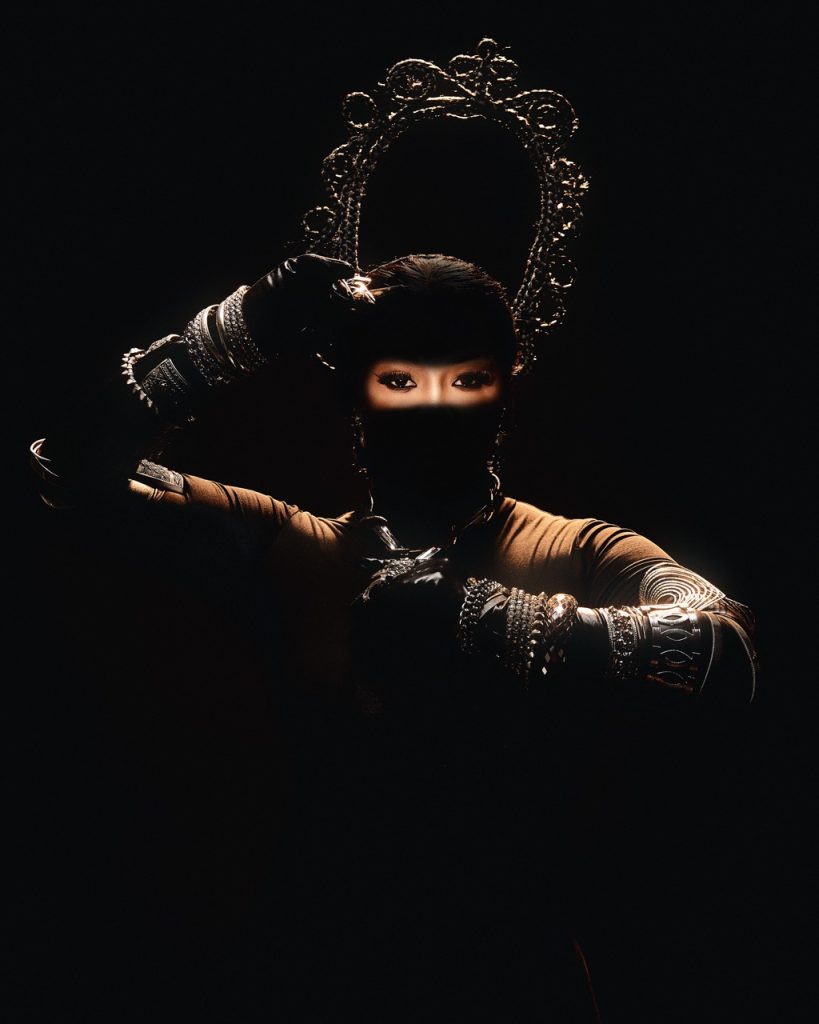
THS: That brings up representation in the industry—particularly for you, Boity, as a female rapper—and, Royi, did it influence your decision to collaborate with a female rapper? Have you both faced challenges or found inspiration in addressing these gaps?
Roiii: Honestly, Boity is one of the best independent rappers I’ve seen. But collaborations across genders in hip hop are rare. Even when they happen, they tend to be one-off singles. There’s still a separation—commercial rappers go one way, lyrical rappers another, and female rappers often stick to working with each other.
We felt like this collaboration was about bridging that gap. It’s not just a momentary thing for us—we see this as the beginning of something bigger. We want to normalize seeing artists of different genders collaborating as equals. This is just the introduction. We’re breaking through that fear of working across different niches and showing that collaboration can be transformative.
Boity: Exactly. It’s about creating something new—something that goes beyond the typical. We want people to get used to seeing Boity and Roii as a duo. This is just the start. And, um, when they’re going through challenges in the space, obviously, it’s… it’s the usual. Not necessarily being undermined, but to some extent, it’s like when you’re expected to be in a certain position. And, um, I think guys often expect us to be boxed into the category of female rapper. But I’m just a rapper—able to go toe-to-toe with any rapper, not just female rappers.
That’s always been the challenge. And I think a lot of female rappers deal with that kind of undermining. We’re often boxed into a specific spot, even though we sound just as good—sometimes even better. But people will still say, “Oh, you’re just…” and that’s always been something I’ve had to maneuver around. I enjoy being in spaces where I’m challenged, where I can prove that I can go head-to-head with anyone, not just women in rap. That’s what I’ve been striving for throughout my time in the music space.
THS: I’m sure, as you mentioned, coming back from a hiatus, and Roii’s leaving the label. So there’s probably a desire to prove yourselves. I’m curious—do you still experience doubts, and do you face creative hurdles that have to do with where you are in your career now?
Boity: Um, yeah. Yes and no. Taking that time off was important for me—I wanted to come back when I felt like my confidence was fully restored, when I was ready to flex that creative muscle again. It’s a mix. On one hand, I walk into spaces with more confidence now, having done this before. I understand my voice better—what I like, what I stand for—unlike when I first started. Back then, everything was new, and I was focused on competing with everyone, trying to sound the way people expected me to.
Now, though, I’ve gotten over that hurdle, and I move with more self-assurance. But on the other hand, there’s still the pressure of a comeback. I need to give my best and make sure I return on the same good note I left on. It’s a balancing act, but it feels so good to be back.
Roiii: The coolest thing about B is that when she steps into the studio, she comes with confidence. I’ve always seen it. She knows what she likes, and she knows what she wants to do. It’s not about regaining confidence—it’s about aligning who she is with how she presents herself now.
A lot of us come into the industry through people, situations, or moments that end up defining us in ways that don’t feel true to who we are. That’s my story. I came through the label, and it worked for that moment, but now I’m realigning with who I want to be. It’s about controlling my own narrative—having full creative control, deciding my next move, and owning my destiny. That’s also where Boity is now. She knows exactly who she wants to be and has a clearer voice.
THS: And of course, collaboration depends on seeing eye to eye, but it also thrives on differences—things one person brings that the other can’t. What are some of those elements that make your collaboration work?
Roiii: First off, Boity has this emotional appeal. She’s a household name—there’s probably no South African who doesn’t recognize her name and face. Meanwhile, I’m more of a technical rapper, focused on honing my craft. I take my time with my music. But I haven’t had as many opportunities to be in the spotlight.
So, individually, we have our strengths. Boity brings the visibility and public appeal, while I contribute lyrically and musically. It’s a give-and-take—we push each other to create something greater. She’s also a great rapper, and I try to help refine that, but she brings the kind of recognition I haven’t had yet. It’s a perfect exchange.
Boity: Yeah, I couldn’t add anything more to that.
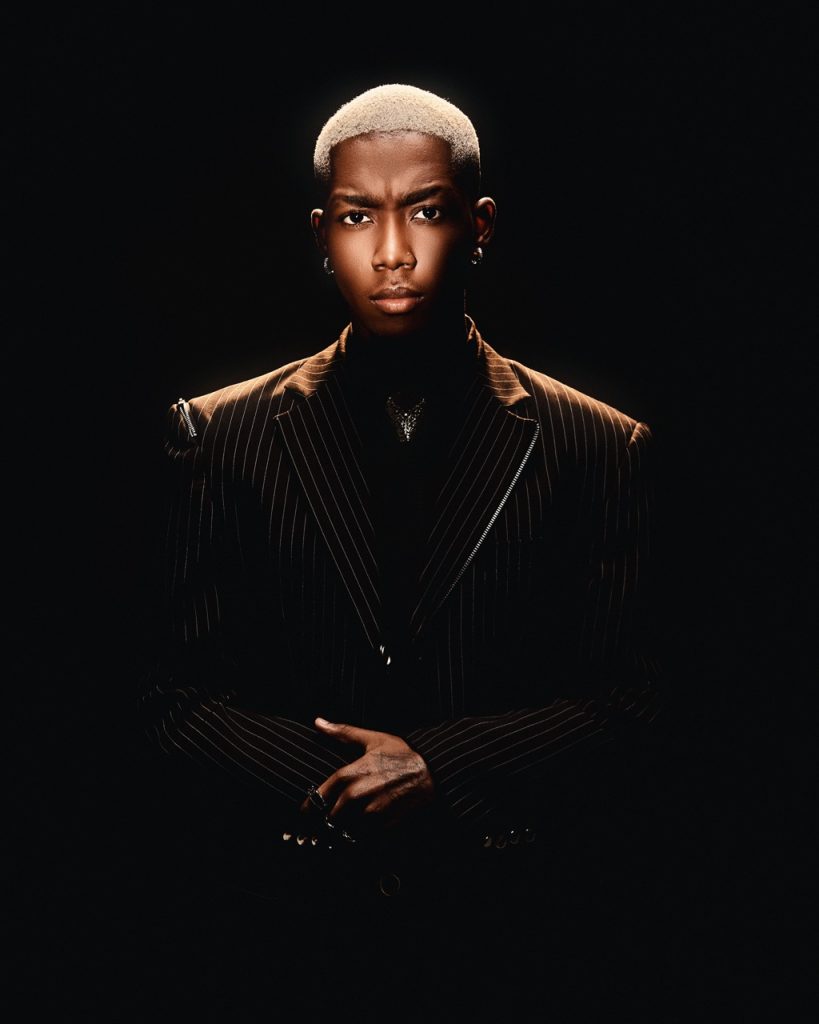
THS: What role does the audience play in that process?
Boity: You have to consider the audience you’re targeting. Sometimes, it feels like music finds its audience rather than you defining who you’re making it for. You can put something out there and discover it resonates with a group you hadn’t anticipated.
It’s tricky to pinpoint a target audience, but once you have a sense of it, you can work around that to a certain extent. However, you don’t want to lose your authenticity in trying to cater to a specific group because people are drawn to your initial authenticity. It’s about striking a balance between knowing your target market and genuinely telling your story, allowing whoever resonates to connect with it.
Roiii: Yeah, I hear that. I was thinking the same thing. There’s also an authenticity to the business side of things. Honestly, making a song specifically for your audience can sometimes feel like it compromises that authenticity. When I signed with the label, I made it clear that if anything happened at the label, I would address it in my music. This has become one of the most controversial pieces of my career. When I released my biggest song to date, I called out the label in it.
As much as this is a business practice, I believe in being honest with my audience. It’s not all roses; it’s not perfect. I’m part of a greater machine, but I still have my voice and my story to share. So it’s not just about curating songs to fit an audience; if you stay true to what’s happening, your audience will shape themselves around your work.
THS: Speaking of specificity and the notion of a target audience, what made you decide to explore drill for Oh My (OMG)? Do you think this will open you up to more listeners, or could it push some away?
Roiii: I think it’s a bit of both. When I first chose drill, even when others said it wasn’t a good idea, I didn’t want to do what was common. I don’t like fitting into a box. That’s the struggle of a typical rapper—everyone wants to stand out.
I didn’t realize there might be disadvantages to making a sound that people hadn’t heard before, but I also recognized a unique opportunity. In South Africa, when you listen to radio stations, you often hear a pop song followed by one of my tracks. I have a market advantage because there’s no one else competing with me in that space.
That was a business decision for me. But as I move forward, I never want to be put in a box. I want my music to challenge the status quo. Sometimes I even challenge my audience, calling out the label in my tracks. It’s about pushing boundaries, and that’s just who I am.
THS: What are some of the themes or sounds we can expect from the album? Can you give us hints?
Boity: Yeah. I’m digging deep and being vulnerable. So it was an interesting journey, tapping into that side of myself. It felt like a positive challenge. I’ve always wanted to do this but didn’t know where to begin. This project has given me the opportunity to have a solid foundation rather than just doing it as a one-off. It’s a cohesive body of work that reflects the balance of emotions I could express, capturing some of that vulnerability. It’s really cool.
I think it’s a body of work that has something for everyone; it’s not monotonous or one-dimensional. We have R&B in there. We explore topics like relationships, and there’s a song about just having a good time, reflecting the day-to-day nature of life. I call it the “adventure song.”
Roiii: It could definitely go on the radio and be played during the festive season, representing those heavy travel times. I made that song specifically with my mom in mind, thinking, “I need to create something she’ll love.” If your mom loves it, I promise the rest of the audience will too. We also dive into grungy drill sounds, which is the first song we released as a lead single. There’s also a bebop drill track that’s more bouncy, just having fun. It’s an amalgamation of different styles.
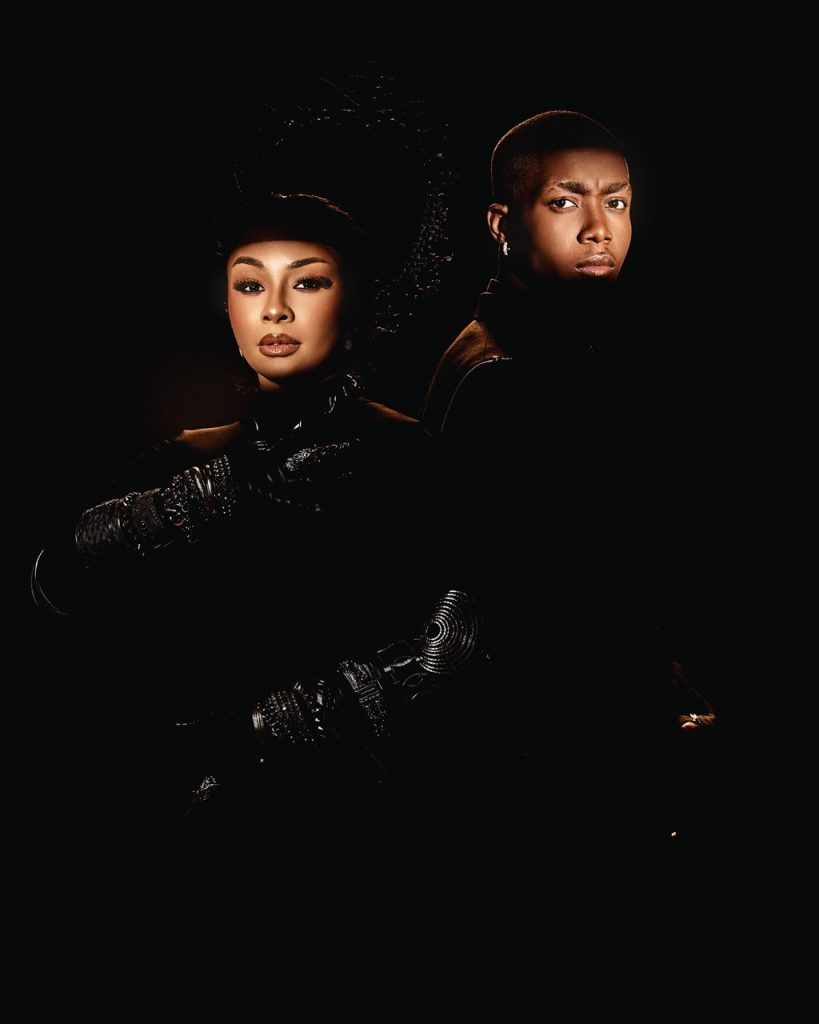
THS: Bubblegum Club has a young readership, many of whom are dedicated hip-hop fans eager to contribute to the industry. Do you have any advice for those trying to find their way in?
Boity: To those breaking into the industry, I’d say if you believe this is your calling, pursue it relentlessly. A door will open. The internet is an incredible space to find assistance. Research, seek mentors—there’s so much more information available now than when we were starting out. Utilize social media to connect with people you feel aligned with. Opportunities are out there. It’s not easy; people often assume things happen overnight, but life doesn’t work that way. It took me years to get where I am. Be patient with yourself. Ensure you’re in this for the right reasons; if it feels like an easy way out, you’ll be disappointed quickly. Expect that there’s a lot of hard work ahead, even after you’ve stepped through that door.
Roiii: To the younger audience, while there are successes at younger ages—like seeing my peers thrive—remember that success doesn’t happen to everyone at the same time. Some artists pop off early, while others take longer to find their footing. Take your time with your story. Sometimes, entering a room full of people expecting them to elevate you isn’t the right approach. Building genuine relationships takes time. When reaching out to collaborate, it’s essential to have established connections. For instance, I had a good relationship with someone who connected me to another artist, which is how opportunities arise. Seize those opportunities when they present themselves and be grateful for them.
Boity and Roiii allowed us this little glimpse into how they navigate the intersections inherent in South African hip-hop. Their upcoming project promises a range of themes that not only reflect the diverse experiences of Black artists in the industry but also challenge the dominant narratives often imposed on them. As they prepare for the album’s release, it’s evident that their work seeks to reclaim space in the music industry, and contribute to a more inclusive and dynamic hip-hop culture rooted in local realities yet forging relentlessly outward.
